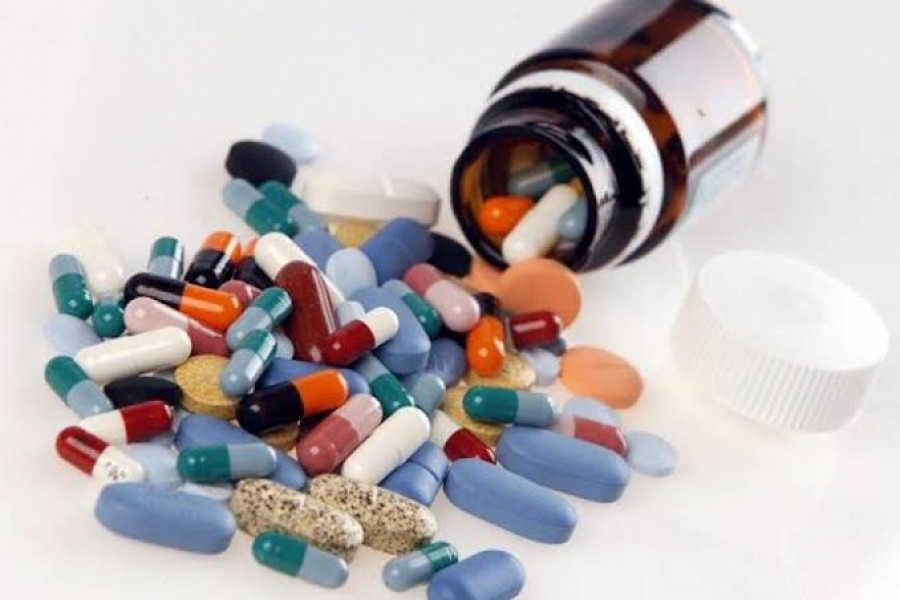Treating the country's pharmaceutical industry in the light of export performance alone is inappropriate given its capacity to meet huge domestic demand almost to the point of self-sufficiency. However, there is no denying the fact that in the global pharma regime, Bangladesh as a beneficiary of patent waiver on manufacturing generic drugs under the WTO Agreement on Trade-Related Aspects of Intellectual Property Rights (TRIPS) stands to gain substantially from export, especially from export of generic drugs.
At a seminar organised recently by a lead Chamber in the capital, the issue of facilitating the country's pharmaceutical industry for increased exports figured prominently. Emphasis was rightly on the strength of the industry that besides meeting mounting domestic demand, is also an export earner, though still at a modest stage.
Forecasts on prospects of the country's pharmaceutical sector have been doing the rounds for quite some time -- for well-deserved reasons. However, given the strictly regulated global pharmaceutical regime coupled with the highly capital-intensive nature of the industry, its expansion is dependent on factors a good deal of which is beyond the capacity of individual entrepreneurs. This is particularly so when it comes to accessing overseas markets, especially those in the developed countries.
The country's pharma industry today meets around 98 per cent of local demand, and the growth it has registered over the years is monumental. The current annual growth of the sector is estimated to be more than 24 per cent. Presently, there are around 240-plus registered pharmaceutical manufacturing companies in the country, and a good number of these companies are engaged in manufacturing a wide range of formulations covering major therapeutic categories. Development of healthcare infrastructure in the country, increased marketing penetration in rural areas, rising health awareness of the people coupled with higher purchasing power, modern diagnostic facilities are the major supportive factors that have contributed to this growth. In addition to meeting domestic demand, this sector is also fast emerging as a prospective source of value-added export. The industry today exports, besides a large spectrum of generic drugs, high-tech specialised products like HFA inhalers, suppositories, nasal sprays, IV infusions, etc., to nearly 100 countries. However, it remains to be said that in view of the highly regulated markets of the advanced countries, most of the exports are confined to the less regulated markets in the developing world.
According to industry insiders, Bangladesh is capable of producing high-quality products as the industry employs state-of-the-art manufacturing facilities, sophisticated quality control equipment and skilled human resources. This is well complemented by the capacity and heavy investment by local companies in the past years. Over the last three years, it has been learnt that approximately $250 million was invested in the sector and preparations are reportedly afoot to raise the investment to $ 1.0 billion in the near future.
Cashing in on generic drugs is what the local manufacturers should be eying now more vigorously than ever before. Around 80 per cent of the global population consumes generic drugs, and the major suppliers are China and India. The global generic market for medicine currently stands at $180 billion. Given the present standing of Bangladesh's pharma industry and its growth potential, industry experts opine that aiming to capture a significant portion of the global market is not too ambitious a target.
However, to continue to develop export capacity, sector specialists strongly emphasise the need for increased investment in research and development (R&D). In fact, R&D is a whole package that calls for simultaneous improvement in a host of areas including among others cultivating appropriate human resource to conduct continuous research and innovation. There is also the need to remove barriers relating to the procurement of Active Pharmaceutical Ingredients (API). Exorbitant cost of importing API (core raw materials) can be largely mitigated if local production of API is eased through substantial investment in R&D. There is thus a definite need to encourage API production by the government. The proposed API Park now under construction in Munshiganj has reportedly run into a snag. Relevant authorities must not lose sight of this important installation. To promote exports, accredited laboratories are also critically required. Such labs are required to conduct proper bio-equivalence and bio-availability tests of the generic drugs produced by the local pharmaceutical companies.
Pharmaceutical industry being a highly capital intensive one has to ensure that its investments match the increasing needs of the time at home and abroad; and to achieve the goals of marketing, especially in high-value overseas markets, it has to fulfil the compliance norms which are often market-specific.


